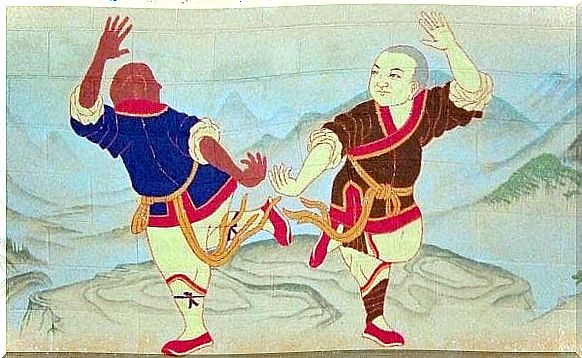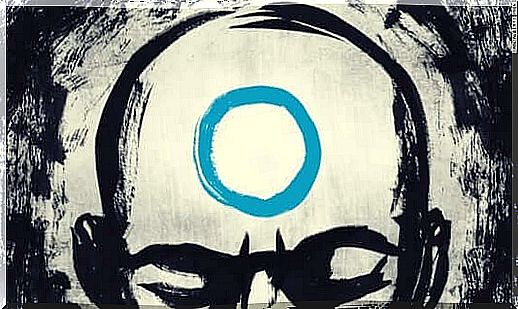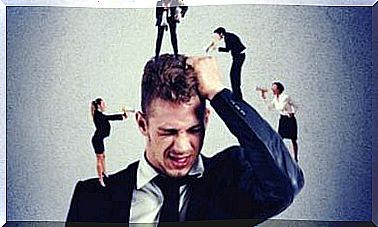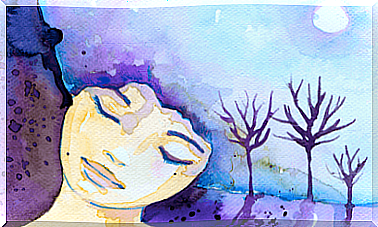Mental Jiu-Jitsu Against Negative Thinking

Jiu-Jitsu – also known as the martial art of flexibility – can also be applied to your mind management. With this you can protect yourself from negative internal dialogues and thoughts of attack . These undermine your self-confidence as well as your well-being.
Mental Jiu-Jitsu is an exercise of mental contemplation with which you can switch off negative thoughts and senseless thought spirals. Mental jiu-jitsu has a simple strategy that we should all adopt. The reason is obvious: Most of us struggle with a tiring inner dialogue that tends to eat away at our potential. These spiritual wars could be minimized if you choose to use this interesting tool.
Mark Twain once said, with his inimitable sense of humor, that ” his thoughts must be astonishing, considering that he had fought so many tough battles with them to end their enmity with him .” There is a lot of truth in this statement. People are irredeemably trapped in intellectual chains of reasoning that do not always work in their favor.

Such an overgrown inner garden is teeming with sentences like “I can’t”, “I have to” and “What will others think of me if I do this or say that?” It is not as easy to “disable” these phrases or to weed them like weeds on your personal field.
Why it is like that? The answer to this is very simple: These sentences have lived in you for many years. Your negative inner dialogue is like an unpleasant travel companion to whom you have given too much power. However, it is indeed possible to get rid of it. These simple techniques will assist you in this important task.

Three Mental Jiu-Jitsu Strategies to “Turn Off” Negative Inner Dialogue
Jiu-Jitsu is a Japanese martial art technique that uses a wide range of attack and defense strategies. The ultimate goal of Jiu-Jitsu is unarmed self-defense. In earlier times it supplemented the usual fighting techniques of the samurai in the country of origin, Japan.
Jiu-Jitsu is said to be the most effective of all martial arts. The goal of the practitioner is to ensure that the opponent surrenders – but without using unnecessary or extreme violence. Jiu-Jitsu is translated as the gentle technique or the yielding art.
The approach of this combat practice is ideally suited to deal with our negative inner dialogue. Mental Jiu-Jitsu consists of the following three components:
1. More peaceful thoughts, less self-boycott

If we devote ourselves to a daily practice such as meditation or mental jiu-jitsu, the practitioner can confidently find that the negative emotions decrease. You feel calmer and more focused.
Mental Jiu-Jitsu aims, among other things, to restore inner balance. This balance serves to reduce “aggressive” negative thoughts, which include self-boycott, self-criticism or typical phrases like “I can’t” or “I don’t like that” .
One interesting and noteworthy thing about this is that in a study conducted at Michigan State University, USA, Dr. Jason S. Moser found the following: You have to use the “third person” when it comes to dealing with the negative inner dialogue and “switching it off”.
Often in a tiresome thought cycle, you will relate to yourself in the first person. However, if you use the third person instead, there is suddenly another “voice” that comes out with authority. This voice can really change things and affect our lives.
Some helpful phrases are:
- Chill out.
- Concentrate.
- Don’t question yourself.
- Do not criticize yourself.
- Appreciate everything you do extra.
2. The art of mental Jiu-Jitsu: Everything that does not serve you is immobilized

Asian martial arts are not aimed at harming other people or knocking them down. The practitioner merely tries to immobilize the opponent and prevent him from acting aggressively towards them. You will also find this strategy very helpful in your daily mental Jiu-Jitsu exercises. It can also be described as a form of stylized combat, a psychological kata .
First of all, you need to figure out which thoughts are unsupportive in the present moment. For example, sometimes you go overboard with self-criticism. Occasionally, you have to criticize yourself, for example when you realize that you have made a mistake. You want to become a better person and do things better. But there are also times when this critical voice no longer falls silent and speaks almost obsessively.
In these cases, you will need to use mental jiu-jitsu to silence the voice of criticism, get to the root of it, and stop its incessant negative activity. You can say the following sentences to yourself:
Watch out, this is not the time.
You have crossed a line with your relentless questioning and your way of making me small.
Stop criticizing me.
This is only allowed if it is really necessary and beneficial.
The only criticism I’ll take is the one that will help me learn and grow.
3. Conquer the harmful thoughts

The third mental jiu-jitsu strategy requires you to become a little more energetic. The goal is clear: to bring down the useless line of reasoning in your head. To do this, it is also necessary to “conquer” the thoughts that paralyze you. This includes getting rid of anything that aches you and that is holding you from living happily, freely, and with emotional maturity. So how can you turn off negative thinking? Here is a guide:
- Find out which harmful thoughts are negatively affecting your well-being.
- Face them and turn them over. Here is an example of a negative chain of thoughts:
- Don’t go to the interview.
- They won’t hire you anyway.
- It’s not worth it .
Conversely, you can ask yourself:
-
- Is there a real reason they wouldn’t hire me?
- What’s the problem if I just give it a try?
- What’s worse: pick me up and try, or stay home and hold me hostage to my fears and insecurities?
- Delete the sentence, tear up the piece of paper and replace it with:
- The thought that it’s not worth going to this interview is of no use to me.
- For this very reason I will prevent him from “kidnapping” my mind.
- Instead, I will replace it with other sentences: “I will go to the interview and do my best. I will be comfortable and I will trust myself. Then I can be proud of what I do ”.
So now you can get an idea of how mental jiu-jitsu can really help you if you practice these strategies on a regular basis. If you spend the time and effort cultivating a healthier life with more confidence and free of irrational reasoning, then your future life will be one of happiness and well-being.









